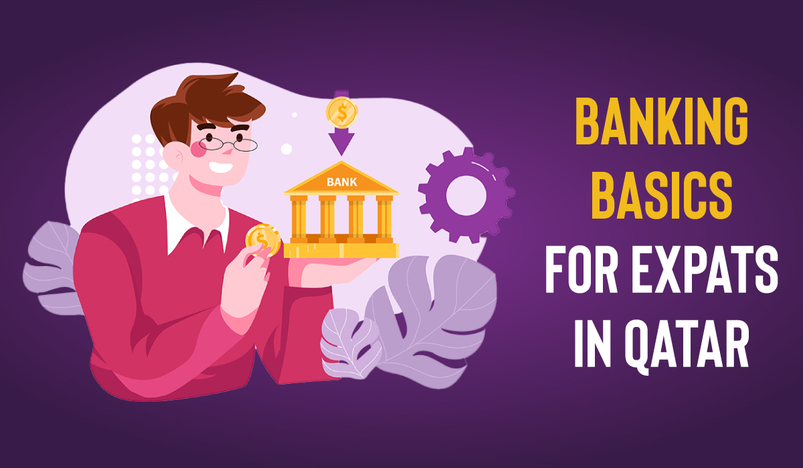
Banking Basics
Managing money and a well-function bank account is a priority in our daily lives, especially for expatriates who are moving countries. So it is important to know the banking basics of the country you are moving to. In Qatar, according to the new Wage Protection System 2015, all expatriates working in the country need to have a local account.
According to the Ministry of Foreign Affairs website, 20 commercial banks are currently operating in Qatar: 12 national banks (4 of which are Islamic) and 8 international banks. They operate through 223 local branches, and Qatar Central Bank supervises them all.
In general, banks in Qatar are open from 7:30 to 13:00 – Sunday to Thursday. However, some banks – such as HSBC, and some QNB and Al Sadd branches in Doha – are also open on Fridays and Saturdays. The banks in shopping malls have more flexible hours and are often open from 10:00 until 22:00.
Banks in Qatar
The major commercial banks:
Although, expats can open an international account with the following banks:
Banking Services in Qatar
Types of Bank Accounts
Opening a local account
Expats will need to apply in person with documents that generally include:
1. Passport, plus copies of information and visa pages
2. Copies of Residency/work permit
3. A No Objection Certificate (NOC) from the expat's Qatari employer, stating their monthly salary
4. Two passport photos
Once the application has been approved, the bank will provide the applicant with a letter from their employer, confirming that they are happy to receive salary payments into the new account. It is worth noting that changing banks at a later date may be difficult, as your existing bank would be required to authorise this.
The dependents of the visa holder cannot open a bank account in Qatar without formal permission of the head of the household. In other terms, the visa holder has to sponsor his own wife or children so that they can open their own bank accounts.
Banking fees in Qatar
Typically, current accounts in Qatar are free of administration fees as long as you maintain a minimum account balance. However, you will have to pay a charge when you set up standing orders with other banks in Qatar or abroad; issue payment orders; replace damaged or additional cards; withdraw cash from ATMs outside of Qatar; pay annual credit card fees; or ask for a new checkbook.
One of the great attractions of relocating to Qatar is that no personal or income tax is levied against individual salaries, even as an expat. This means that, while in Qatar, an expat's gross salary will be paid to them without any deductions whatsoever.
.jpg)
Qatar Secures Place Among the World's Top 10 Wealthiest Nations
.jpg)
Hamad International Airport Witnesses Record Increase in Passenger Traffic

Saudi Arabia: Any visa holder can now perform Umrah

What are Qatar's Labour Laws on Annual Leave?
Leave a comment